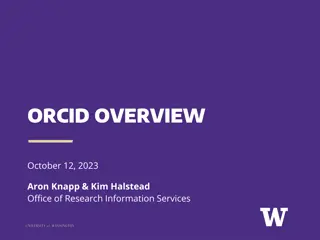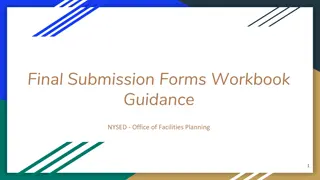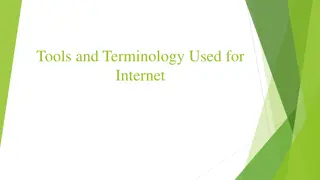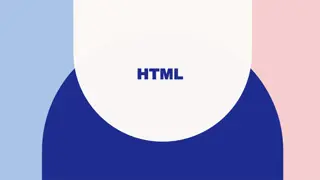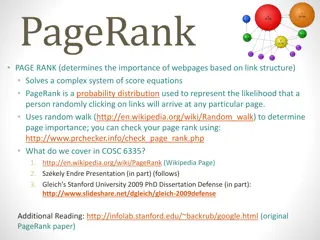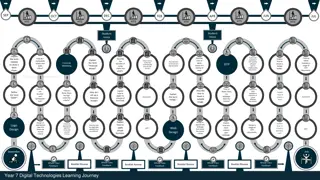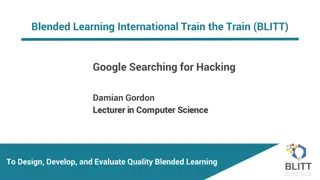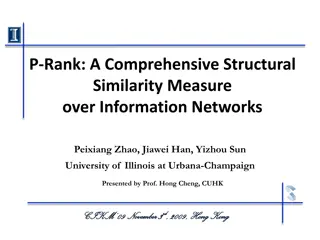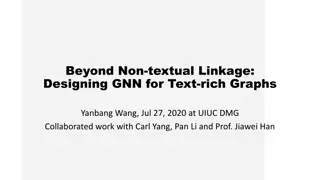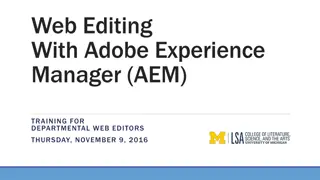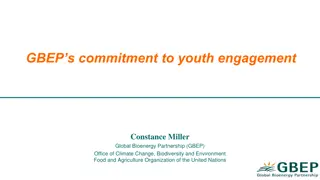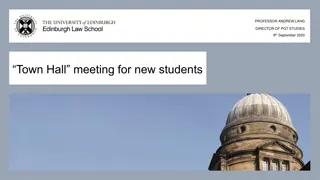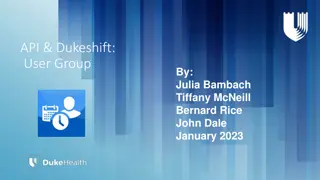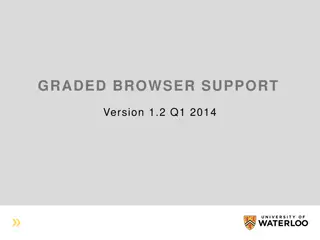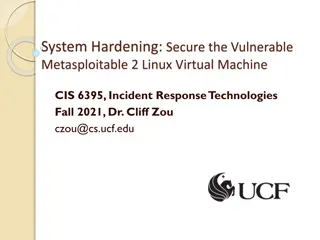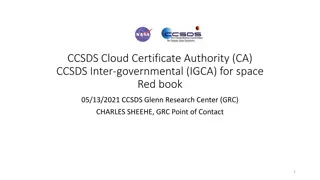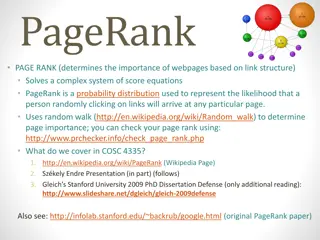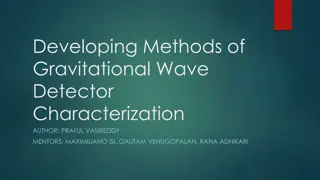ORCID OVERVIEW
ORCID is a unique digital identifier that connects researchers to their work, grants, and publications. Its benefits include reducing administrative time, ensuring compliance, maintaining consistency, and enabling easy publication management. The communication plan at the University of Washington in
0 views • 9 slides
Final Submission Forms Workbook Guidance for NYSED Projects
The Final Submission Forms Workbook provides necessary forms for the approval of final plans and specifications for projects according to the standards of the New York State Education Department, Office of Facilities Planning. The workbook includes guidance on submission documents, districtwide and
0 views • 29 slides
Understanding Internet Tools and Terminology
The Internet is a global network of interconnected computers utilizing the TCP/IP communication method. It includes the World Wide Web, browsers for accessing content, servers for data transfer, websites with webpages displayed via web servers, URLs for addressing resources, and protocols like SMTP,
2 views • 6 slides
HTML Essentials: Basics and Elements for Web Development
Introduction to HTML, the backbone of webpages, used for structuring content. Learn about HTML documents, tags, attributes, and types of tags, which define the structure and layout of web documents.
1 views • 9 slides
Understanding PageRank: Importance of Webpages and Link Structure
PageRank, a probability distribution determining webpage importance based on link structure, utilizes a random walk to assess page significance. It employs a Surfer Model to identify important pages within a web structure. This algorithm, developed by Larry Page and Sergey Brin at Stanford Universit
0 views • 41 slides
Digital Design and Publishing Techniques for Success
Explore tools for drawing shapes, learn about DTP software and document creation, discover various color application methods, evaluate DTP documents, manipulate shapes and text, create effective documents, apply charts/graphs, design folded leaflets, understand financial models, justify pricing stra
0 views • 5 slides
Quality Blended Learning: Google Searching and Security Risks
Google searching has become a standard method for accessing information online, but it can also pose security risks if webpages are left vulnerable to hacking. This article explores how the Google search engine can be used to find valuable resources for designing, developing, and evaluating quality
0 views • 27 slides
P-Rank: A Comprehensive Structural Similarity Measure over Information Networks
Analyzing the concept of structural similarity within Information Networks (INs), the study introduces P-Rank as a more advanced alternative to SimRank. By addressing the limitations of SimRank and offering a more efficient computational approach, P-Rank aims to provide a comprehensive measure of si
0 views • 17 slides
Enhancing Graph Neural Networks for Text-rich Graphs
Designing GNNs for text-rich graphs involves considering both textual and non-textual linkage information among entities, such as papers, webpages, and people. Utilizing structural information beyond citation networks and exploring latent textual linkages are key challenges. Previous work has focuse
0 views • 33 slides
Enhancing Web Editing Skills with Adobe Experience Manager (AEM) Training
This training session on November 9, 2016, focuses on empowering departmental web editors with essential skills in Adobe Experience Manager (AEM). Participants will learn to log in securely, navigate the AEM interface, create new navigation and webpages, utilize various components, add content like
0 views • 9 slides
GBEP Youth Engagement and Education Initiatives
GBEP is committed to engaging youth in bioenergy activities through capacity building initiatives, dedicated webpages, and the GBEP Youth Award. Collaborating with YUNGA, GBEP developed educational materials like the Bioenergy Supplement for youth, encouraging behavior change towards sustainable ene
0 views • 9 slides
Town Hall Meeting with Professor Andrew Lang, Director of PGT Studies
Professor Andrew Lang, Director of PGT Studies, led a Town Hall meeting for new students at the ELS to provide insights into the upcoming academic year amidst COVID-19 adjustments. The focus was on changes in teaching methods, student interaction, and facility usage. Resources were shared including
0 views • 17 slides
DukeShift API & User Group Updates January 2023
Stay informed on DukeShift API updates, user group schedules, monthly maintenance, self-scheduling, key dates, and more. Get the latest information on staff training classes, payroll support, and general system upgrades. Bookmark important webpages and be prepared for the next 6 months of user group
0 views • 31 slides
University of Waterloo Browser Support Guidelines
The University of Waterloo has introduced a graded browser support system, emphasizing that support does not mean identical experiences for all users. The purpose is to ensure accessibility and prioritize content consumption based on browser capabilities. The guidelines introduce grades of support a
0 views • 21 slides
Secure System Hardening Techniques for Metasploitable 2 Linux VM
Learn effective system hardening practices to secure a vulnerable Metasploitable 2 Linux Virtual Machine. This includes disabling Telnet service, checking and updating Vsftpd, and patching vulnerabilities to enhance the VM's security and prevent unauthorized access. Explore online tutorials and usef
0 views • 25 slides
Overview of CCSDS Cloud Certificate Authority (CA) and Operational Concept
Explore the CCSDS Cloud Certificate Authority (CA) infrastructure, including the Architecture, IGCA Bridge CA, and certification processes. Learn about the Next Steps for an IGCA for space and the Operational Concept involving control of VMs, webpages, and email interfaces. Discover how IGCA will en
0 views • 8 slides
Understanding PageRank Algorithm and Its Importance in Web Search
The PageRank algorithm determines the importance of webpages based on their link structure, using a probability distribution to represent the likelihood of randomly arriving at a particular page via clicking on links. PageRank employs a random walk approach, and its Surfer Model analyzes web structu
0 views • 41 slides
Methods of Gravitational Wave Detector Characterization
Developing methods for gravitational wave detector characterization is crucial for understanding noise sources, distinguishing noise from signals, and improving detection range. Benefits of small-scale prototypes include easier testing and control of interferometer features. Techniques such as ALS (
0 views • 18 slides
